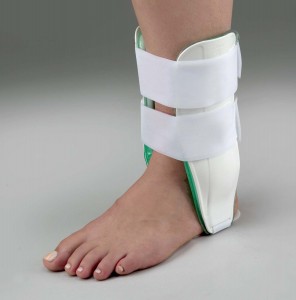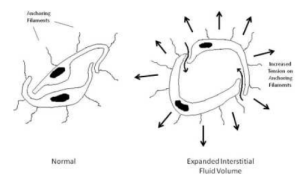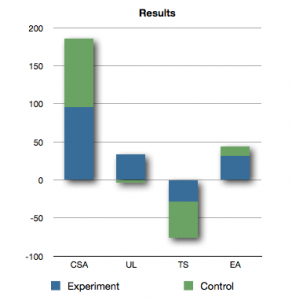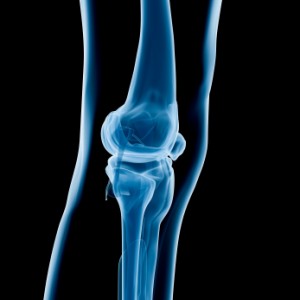The post-operative rehabilitation of an ACL reconstruction is something that many sports physiotherapists perform on a daily basis. Many will know that muscular atrophy is quite common; particularly affecting the quadriceps, hamstrings and triceps surae. In fact, quadriceps atrophy and strength will often exceed 20% during the first three months (Nicholas et al., 2001). Therefore, we see post-operative rehabilitation protocols focusing on quick restoration of the patients muscle function and strength. Thus, we are often quick to, and appropriately so, prescribe exercises. However, this article will discuss the potential for the additional clinical benefits of electrical muscle stimulation (electro-stimulation)
In this episode of the podcast I interview Jonathan Mulford. Dr Mulford is an Orthopaedic Surgeon who specialises in all aspects of knee surgery. He graduated from the University of Tasmania with Honours in 1995, and completed his orthopaedic training in Sydney in 2005. In addition to his clinical work he has a strong interest in clinical research, and has just authored a systematic review on the use of the LARS ligament.
 TSP 008: LARS/ACL Reconstruction with Jonathan Mulford [ 29:43 ] Play Now | Play in Popup | Download
TSP 008: LARS/ACL Reconstruction with Jonathan Mulford [ 29:43 ] Play Now | Play in Popup | Download
Ankle injuries are a ridiculously common sports injury. Ankle injuries are the most common injuries in a wide variety of popular sports. In fact, it has been suggested that ankle injuries account for 10-30% of all sports injuries; 77% of which are lateral ankle sprains. Thus, it goes without saying that knowledge of evidence based management and current best practice is essential for lateral ankle sprains. This article will discuss the current evidence for the use of bracing following acute ankle sprains.
It will come as no surprise to anybody that we are in the business of treating soft tissues injuries. If this is a surprise.. stand up and walk away from the screen now … this information or website is not for you! But for the majority of physiotherapists who treat acute soft tissue sports injuries we will base our early interventions around the PRICE principle (protection, relative rest, ice, compression, elevation). This would be considered a component of gold-standard management…
To explain the importance of knowledge about these conditions I will frequently tell you how common these ligament injuries are. Well, it has been suggested that up to 37% of all patients with knee haemarthroses have an associated PCL injury. Furthermore, the incidence of injury is particularly high in sports that involve heavy contact. That means that sports physiotherapists that are involved in the management of athletes from contact sports need to be aware of the evidence based assessment and management of these ligament injuries.
The use of ultrasound therapy is widespread in sports physiotherapy and physical therapy practice. In most cases it is used as an adjunctive therapy to other forms of treatment and rehabilitation. This, unfortunately, is in the absence of well-designed clinical trials demonstrating any significant improvement in human function. This article will discuss recent research on low intensity pulsed ultrasound for the management of soft-tissue injuries….
Introduction Sports physiotherapists will regularly (I’m talking every day) rehabilitate knees that have undergone ACL reconstruction. As the vast majority of you will know, it is a common injury with a relatively long rehabilitation timeframe (generally 6 – 12 months depending on surgeon’s preference). This long rehabilitation and progression through to return to play (RTP) […]
Cyclops lesions are an unfortunate sequelae of anterior cruciate ligament injury, and are most commonly seen following ACL reconstructions. The cyclops lesion is a consequence of a localised form of anterior arthrofibrosis. This results in the formation of a nodule of fibrous tissue in the anterior portion of the ACL graft (Tonin et al., 2001). The cyclops lesion sits in the anterior margin of the intercondylar notch, just above the tibial tunnel, which can become impinged between the tibia and femur upon knee extension (Bradley et al., 2000).
This video taping technique tutorial is for a low grade/sprain medial collateral ligament injury. This is a really quick and simple method to provide some support to the injured structures. If you consider the PRICE management of acute soft tissue injuries – this is perfect to use in the protection phase.
It must be the hottest debate in knee surgery at the moment. Should ACL reconstructions be performed using the LARS (Ligament Augmentation and Reconstruction System) or should orthopaedic surgeons continue to use the more traditional four strand hamstring (4HS) or bone patella tendon bone (BPTB) grafts? It is a good question. Obviously for us as sports physiotherapists the choice is not ours to make, but, invariably the injured athlete will ask our professional opinion.
In the past this site has featured some lighter, colloquial blog posts. These articles discuss issues related to the greater physiotherapy community. Thus, I present a few mantras I have heard, adapted or made up for the physios to live by in the coming year.
Radial tunnel syndrome is rare, it is challenging to differentially diagnose and can be a monster to manage. If you have a recalcitrant case of tennis elbow then this post will interest you! This article discusses the best available evidence for assessment and management of radial tunnel syndrome.








